How Long Does Flour Last?
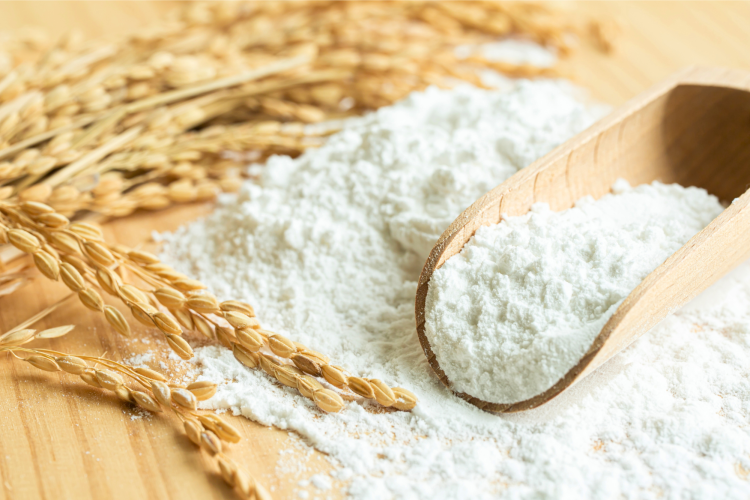
So, you’ve found an old bag of flour hidden away at the back of your pantry and now you’re wondering, “How long does flour last?” Many people often take flour's shelf-life for granted, but when was the last time you looked at the best-before date on that bag of flour?
Technically, flour can and does go bad so knowing the average shelf-life of the flour in your pantry can help ensure you keep baking safe (and tasty!) sweet treats for you and your family.
Keep reading this informative guide that answers the question “How long does flour last?” and learn some tips on how to store your flour to keep it fresh.
How Long Does Flour Last?
Flour is the foundation of most baking adventures, so any good baker should know the answer to the question “How long does flour last?”. The shelf-life of flour will vary depending on the flour you have, such as a standard all-purpose, self-rising, oat, whole wheat, almond or coconut flour. Flour has a shorter shelf-life than you may think; more hardy flours like all-purpose flour will last for up to a year, whereas almond flour is only good for two to four months in the pantry.
Old flour can be dangerous if it is moldy. Bad molds can produce dangerous chemicals known as mycotoxins, which can cause symptoms like diarrhea and vomiting. Old flour can also alter the taste of your baking, and not in a good way!
Another question to answer is “How long does flour last after the expiration date?” Fortunately, depending on your storage method, there is some wriggle room of about six months after the expiration date for you to use up your flour, though you must be cautious when doing this.
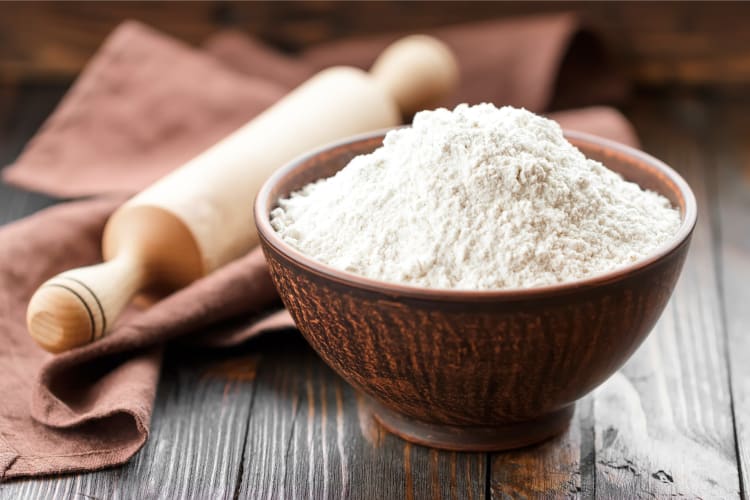
How Long Does All-Purpose Flour Last?
How long does all-purpose flour last in the pantry? All-purpose flour is probably the most common variety found in homes and belongs to the refined white flour family.
All-purpose flour has an average shelf-life of six to eight months if left in your pantry. However, if you are storing your flour in airtight containers and a cool, dry and dark place, you can extend the shelf-life to over a year. Some people even choose to store their flour in the fridge or freezer, which can bump up the shelf-life to at least two years.
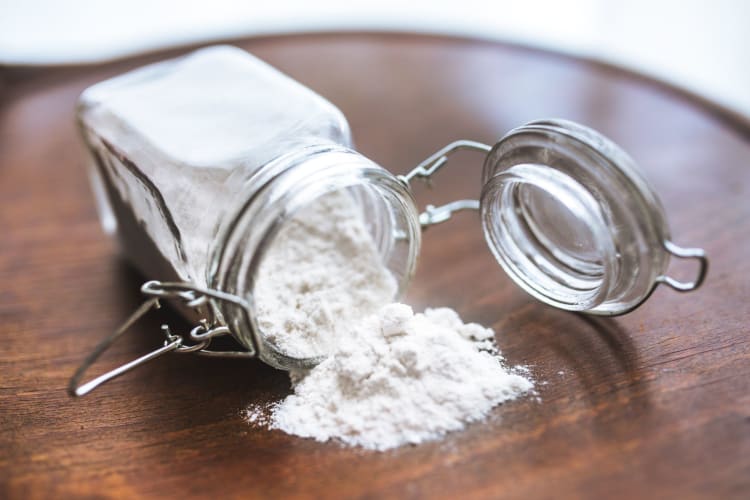
How Long Does Self-Raising Flour Last?
Self-raising flour also belongs to the refined white flour family but unlike all-purpose flour, it has a shorter lifespan due to the baking soda or baking powder found in the flour. Most experts recommend that you use this flour within a year, otherwise, the self-raising properties stop working and it can have disastrous outcomes on your bakes.

How Long Does Whole Wheat Flour Last?
Unlike normal all-purpose flour, whole wheat flour contains the germ from outside of the wheat germ and comes with a higher fat percentage than refined white flour. The natural oils from the bran and wheat germ have a higher chance of turning rancid, which can be sickly to consume and certainly don’t taste great.
How long flour lasts when it’s whole-wheat will depend on storage. A sealed bag of whole-wheat flour can last three months in the pantry and one year in the fridge or freezer. An open bag of whole wheat flour can last between one and three months in the pantry, up to six months in the fridge and a year in the freezer.
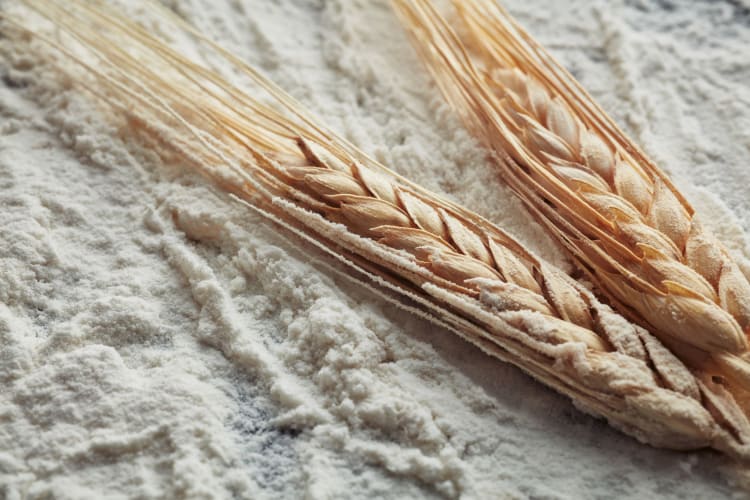
How Long Does Bread Flour Last?
Many people assume that bread flour and all-purpose flour are the same, but it’s not true. While bread can technically be made with all-purpose flour with added leaving and raising agents, bread flour is a high-protein flour that adds more structure to your baking.
How long does bread flour last? Bread flour has the same shelf life as all-purpose flour, which is about a year if stored correctly.

How Long Does Almond Flour Last?
Almond flour has become a staple in the kitchen over recent years and is great for people looking for a gluten-free alternative to all-purpose flour. Almond flour is also perfect for keto-friendly baking as it has high levels of protein. So, how long does this flour last? Because almond flour and other nut-based flours have more fat, they can go rancid a lot faster than other varieties.
Typically, unopened almond flour in the pantry will only last for between two and four months. If you store this flour in the fridge, you can increase this to between six and 12 months.
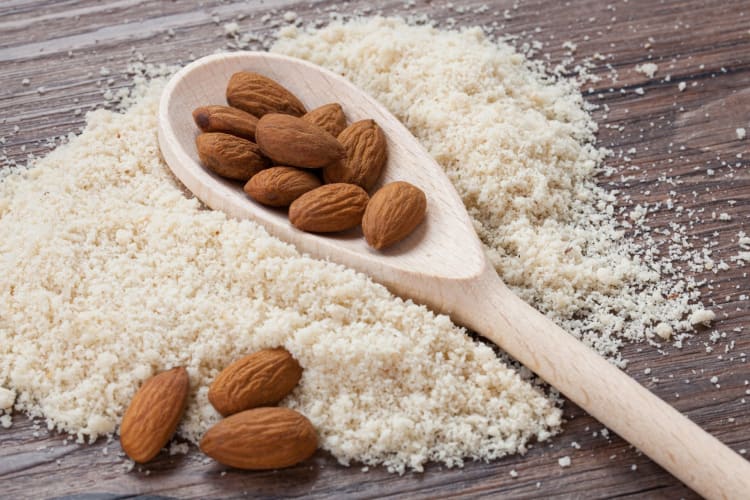
How Long Does Coconut Flour Last?
Coconut flour is another gluten-free flour used in baking. Perhaps you have a big bag sitting in your pantry, which has led you to ask the all-important question, “How long does flour last?”
Made from dried and ground-up coconut meat, this flour is naturally high in fiber and protein. It is also high in fats, which means it doesn’t have a very long shelf life. An opened bag of coconut flour will last about six months before it goes bad and loses all its nutrients. Unopened bags of coconut flour can last 12 to 18 months if stored properly.
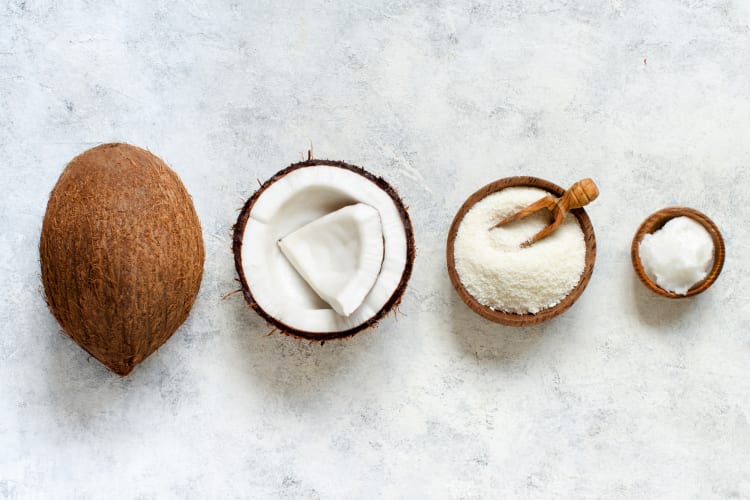
How Long Does Flour Last After Opening?
Opening a bag of flour cuts down the shelf life and for some types of flour, this can be sooner than others.
Here is how long each flour lasts after opening:
- All-purpose flour: between six and eight months
- Whole-wheat flour: between one and three months
- Bread flour: between six and eight months
- Almond flour: According to the date on the packaging
- Coconut flour: between three and six months
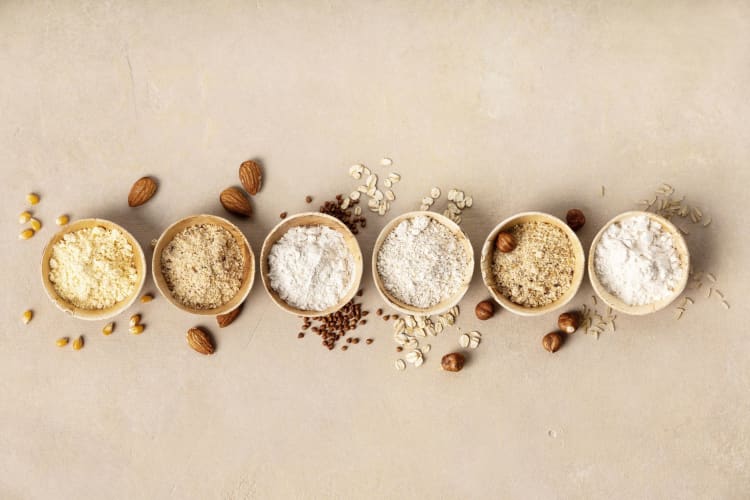
How Long Does Flour Last After the Expiration Date?
If you’re uncertain whether your flour is still safe to eat or you’re wondering “how long does flour last?” it is a good idea to check the expiration date on the packaging. You can still use most flour for some time after the expiration date. This time period can range up to six months, depending on how you store it.
Keeping your flour in an airtight container in the fridge or freezer can increase the shelf life way past the expiration date. But ultimately this does not remove the risks that come with eating expired flour. If you’re unsure of whether to use expired flour, the best thing you can do is throw it away.
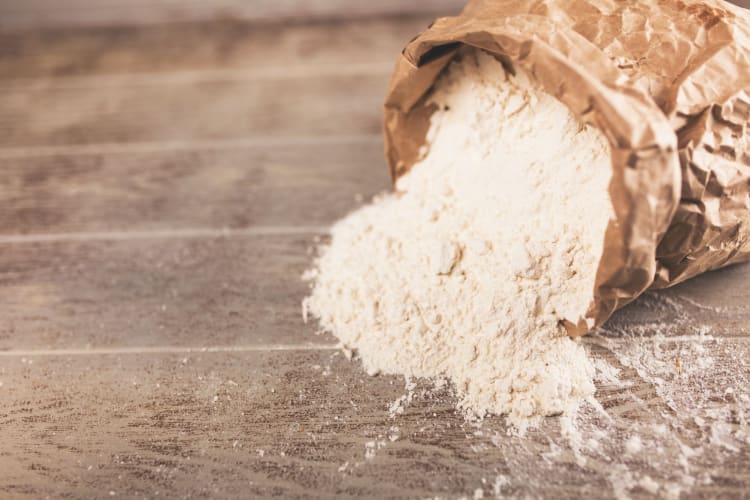
How To Tell if Flour Has Gone Bad
On top of using the expiration date provided on the packaging, there are some signs you can look out for that your flour has gone bad.
The best way to determine if your flour has gone off is by smelling it. Typically, fresh flour will have a neutral odor. If your flour smells stale or sour, this is a sign that you should not use it. The color of the flour is also a good indicator. Discolored flour means it has gone bad. Another obvious sign your flour has gone bad is the presence of mold.
Keep an eye out for lumps and even bugs like weevils in your flour.
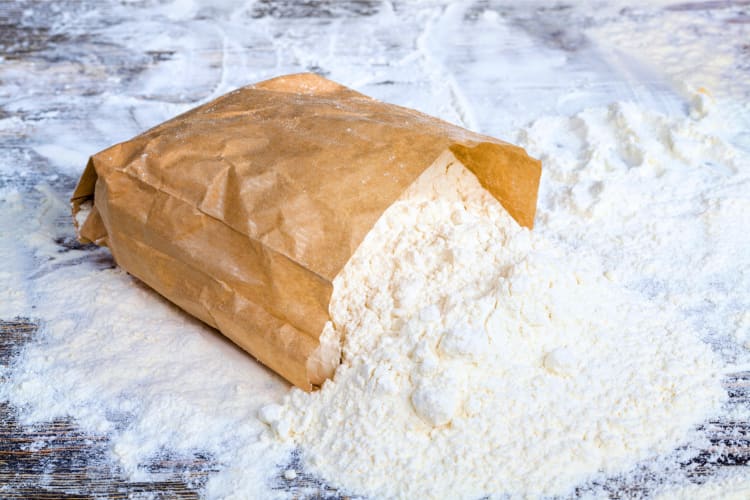
How To Store Flour
Proper storage techniques and answering questions like “How long does flour last?” are just a few of the benefits of attending a cooking class near you. You’ll also learn a host of tips and tricks to achieving the perfect baked results, every time!
In this case, you’ll learn that storing your flour properly can extend the shelf life and ensure that you are baking with fresh flour that tastes good and is safe to eat. One easy way to store your flour is in an airtight container which is placed in your fridge or freezer. Keeping the natural oils as cool as possible is important when you’re using nutty flours like almond and coconut.
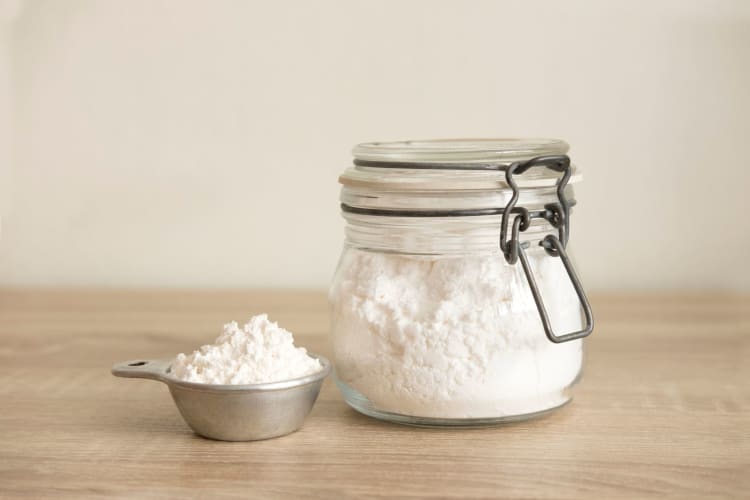
How Long Does Flour Last in the Freezer?
You can extend the shelf life of flour by storing it in your freezer. “How long does flour last in your freezer?” you ask. All-purpose flour stored in the freezer can last up to two years and nut-based flour can last up to one year. To safely store flour in the freezer you need to wrap the flour in a resealable freezer bag or an airtight container.

How Long Does Flour Last in the Pantry?
If you’ve been storing your flour in your pantry, you might be asking yourself “How long does flour last?” and whether it’s still safe to use. Because flour lasts longer when stored in a cool and dry space, pantries are a good place to store your dry goods. An opened bag of flour can between six and eight months in the pantry if properly stored.
Flours that have self-raising agents or contain fats from nuts will have a shorter lifespan in the pantry of between three and six months.

Whilst flour seems like a pantry staple that never expires, it can go bad. Not only can using gone-off flour cause your food to taste different, but it can also have negative health effects. So, the next time you’re staring at an old bag of flour, wondering “How long does flour really last?”, use your knowledge gained here and make the right call. And remember — when it comes to food and ascertaining whether or not it has expired, the best motto you can live by is “If in doubt, throw it out!”
For even more ways to explore your favorite foods, check out other experiences happening on Cozymeal.
